Analysis by consultants at The Andersons Centre has found UK sheep and beef production will be the worst affected by new post-Brexit trade deals.
The exercise assessed the long-term impact of the UK’s new trade deals with Australia and New Zealand (NZ), as well as potential future agreements with Canada and the Gulf Cooperation Council.
Michael Haverty from Andersons presented the figures at the recent Irish Farmers Journal spring conference, organised in partnership with the Livestock and Meat Commission.
“There are significant challenges in output for the sheepmeat sector but also declines for the beef sectors as well,” he explained.
With UK producers competing against lower-cost imports from the likes of Australia and NZ, the analysis points to a 10.5% drop in economic output from the UK sheep sector under a “low liberalisation” scenario. This moves to an 11% drop under “high liberalisation” where more trade takes place under the agreements.
Similarly, the beef sector sees declines in output equating to 2.8% and 6.1% under the low and high liberalisation scenarios respectively.
Short term
In the short-term, Haverty forecast that beef prices will remain at “a strong level” this year when compared to 2022 and 2023, although there is scope for “downward pressure” later in 2024.
“This is somewhat linked to more tariff rate quota allowance for Australia and so beef imports are projected to increase,” he said.
On sheepmeat, he pointed to the record high prices at present and suggested tight supplies will help underpin the market in the months ahead.
“We think prices will be very much in the upper end of the range that we have seen over recent years, with prices coming down when the bulk of UK lamb crop comes to market. In the latter part of the year, there could be some influence from Australia and NZ too,” he said.
Farm profits
With Andersons forecasting that prices in the sheep and beef sectors will ease later this year, it has a negative impact on profits for “Meadow Farm”, a theoretical lowland farm in NI.
Meadow Farm is 60 hectares (ha) in size and has 27 sucklers, 200 ewes, plus a small dairy beef enterprise.
Livestock output is forecast to fall from £1,447/ha in 2023/24 to £1,285/ha next year. Overhead costs are almost unchanged at £709/ha, although variable costs fall from £654/ha to £600/ha in 2024/25.
With drawings of £20,000 included, Meadow Farm has a loss of £394/ha in 2024/25, which compares to a loss of £285/ha the year before.
When Basic Payment and Beef Carbon Reduction Schemes are added in, a loss of £60/ha is forecast next year. By comparison, in 2023/24, there was a surplus of £30/ha although in 2022/23, the theoretical farm lost £201/ha.
Expectations from a Labour government
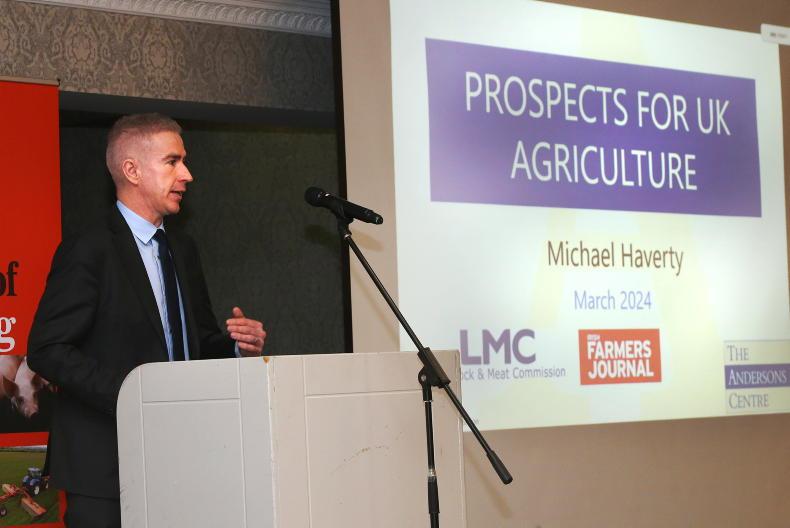
Michael Haverty from Andersons addressing the Spring Conference in Cookstown Co Tyrone. \ Houston Green
With a UK general election expected later this year and the Conservative Party behind in the opinion polls, Labour’s policies that relate to farming have come under the spotlight.
Michael Haverty from The Andersons Centre suggested the main change that a Labour administration could bring is a new veterinary agreement between the UK and EU.
This could remove the need for checks related to animal and plant health on goods moving between Britain and the EU, including NI.
However, Haverty does not foresee any “major, significant changes” in the UK’s relationship with the EU and he thinks reform of immigration policy is unlikely, even though both issues are often raised by agri food representatives.
“Labour will be aware of the so-called ‘red wall’ constituencies in England, where freedom of movement and migration was an issue at the last election,” he said.
Similarly, Labour’s policy on farm support is broadly similar to the Conservatives in that both parties want payments to be mainly for delivering environmental outcomes.
“If there were any significant changes, it would require primary legislation. We don’t really see that happening and this type of approach is going to continue,” he said.
Haverty suggested that the overall budget for farm support across all regions of the UK is “likely to remain static” into the future.
“We might get slight increases here and there but not that much. It means more constraints on agriculture and a focus on other spending priorities across the UK,” he said.
Tax and trade
He also does not expect a significant change to Inheritance Tax exemptions, including agricultural property relief, under a Labour government.
“There is not much of an appetite to change it. Policy makers have other priorities to focus on and that property relief is quite small in the overall scheme of things,” Haverty said.
He said Labour will be less eager to pursue new post Brexit trade deals and this could help avoid a further rise in food imports that undermine UK farmers.
A second term in the White House for Donald Trump could put a US-UK trade deal back on the agenda, although Haverty said there will be “a lot less appetite” for a deal if Labour is in power.
More to food security than self sufficiency
The latest official data indicates that the UK is around 60% self-sufficient in food, which means 40% of the food that is consumed in the UK is imported.
However, Michael Haverty pointed out that this figure varies widely across food types and self-sufficiency in the products that can be produced locally tends to be relatively high.
For example, UK self-sufficiency for sheepmeat is 109% and barley is 115%, meaning more is exported than imported. Similarly, beef is at 85%, eggs is 90% and butter is at 97%, whereas the UK is only 16% self-sufficient in tomatoes.
Haverty said self-sufficiency and food security “are different things” as there are “a range of other factors” that influence whether a country has sufficient and reliable access to nutritious food.
This includes trade arrangements, geopolitics, labour availability, economics, climate, water supply, logistics and agricultural productivity.
“There is a tendency within the sector to think ‘if you are self-sufficient, you are very food secure’, but it doesn’t quite work like that,” Haverty said.
Analysis by consultants at The Andersons Centre has found UK sheep and beef production will be the worst affected by new post-Brexit trade deals.
The exercise assessed the long-term impact of the UK’s new trade deals with Australia and New Zealand (NZ), as well as potential future agreements with Canada and the Gulf Cooperation Council.
Michael Haverty from Andersons presented the figures at the recent Irish Farmers Journal spring conference, organised in partnership with the Livestock and Meat Commission.
“There are significant challenges in output for the sheepmeat sector but also declines for the beef sectors as well,” he explained.
With UK producers competing against lower-cost imports from the likes of Australia and NZ, the analysis points to a 10.5% drop in economic output from the UK sheep sector under a “low liberalisation” scenario. This moves to an 11% drop under “high liberalisation” where more trade takes place under the agreements.
Similarly, the beef sector sees declines in output equating to 2.8% and 6.1% under the low and high liberalisation scenarios respectively.
Short term
In the short-term, Haverty forecast that beef prices will remain at “a strong level” this year when compared to 2022 and 2023, although there is scope for “downward pressure” later in 2024.
“This is somewhat linked to more tariff rate quota allowance for Australia and so beef imports are projected to increase,” he said.
On sheepmeat, he pointed to the record high prices at present and suggested tight supplies will help underpin the market in the months ahead.
“We think prices will be very much in the upper end of the range that we have seen over recent years, with prices coming down when the bulk of UK lamb crop comes to market. In the latter part of the year, there could be some influence from Australia and NZ too,” he said.
Farm profits
With Andersons forecasting that prices in the sheep and beef sectors will ease later this year, it has a negative impact on profits for “Meadow Farm”, a theoretical lowland farm in NI.
Meadow Farm is 60 hectares (ha) in size and has 27 sucklers, 200 ewes, plus a small dairy beef enterprise.
Livestock output is forecast to fall from £1,447/ha in 2023/24 to £1,285/ha next year. Overhead costs are almost unchanged at £709/ha, although variable costs fall from £654/ha to £600/ha in 2024/25.
With drawings of £20,000 included, Meadow Farm has a loss of £394/ha in 2024/25, which compares to a loss of £285/ha the year before.
When Basic Payment and Beef Carbon Reduction Schemes are added in, a loss of £60/ha is forecast next year. By comparison, in 2023/24, there was a surplus of £30/ha although in 2022/23, the theoretical farm lost £201/ha.
Expectations from a Labour government

Michael Haverty from Andersons addressing the Spring Conference in Cookstown Co Tyrone. \ Houston Green
With a UK general election expected later this year and the Conservative Party behind in the opinion polls, Labour’s policies that relate to farming have come under the spotlight.
Michael Haverty from The Andersons Centre suggested the main change that a Labour administration could bring is a new veterinary agreement between the UK and EU.
This could remove the need for checks related to animal and plant health on goods moving between Britain and the EU, including NI.
However, Haverty does not foresee any “major, significant changes” in the UK’s relationship with the EU and he thinks reform of immigration policy is unlikely, even though both issues are often raised by agri food representatives.
“Labour will be aware of the so-called ‘red wall’ constituencies in England, where freedom of movement and migration was an issue at the last election,” he said.
Similarly, Labour’s policy on farm support is broadly similar to the Conservatives in that both parties want payments to be mainly for delivering environmental outcomes.
“If there were any significant changes, it would require primary legislation. We don’t really see that happening and this type of approach is going to continue,” he said.
Haverty suggested that the overall budget for farm support across all regions of the UK is “likely to remain static” into the future.
“We might get slight increases here and there but not that much. It means more constraints on agriculture and a focus on other spending priorities across the UK,” he said.
Tax and trade
He also does not expect a significant change to Inheritance Tax exemptions, including agricultural property relief, under a Labour government.
“There is not much of an appetite to change it. Policy makers have other priorities to focus on and that property relief is quite small in the overall scheme of things,” Haverty said.
He said Labour will be less eager to pursue new post Brexit trade deals and this could help avoid a further rise in food imports that undermine UK farmers.
A second term in the White House for Donald Trump could put a US-UK trade deal back on the agenda, although Haverty said there will be “a lot less appetite” for a deal if Labour is in power.
More to food security than self sufficiency
The latest official data indicates that the UK is around 60% self-sufficient in food, which means 40% of the food that is consumed in the UK is imported.
However, Michael Haverty pointed out that this figure varies widely across food types and self-sufficiency in the products that can be produced locally tends to be relatively high.
For example, UK self-sufficiency for sheepmeat is 109% and barley is 115%, meaning more is exported than imported. Similarly, beef is at 85%, eggs is 90% and butter is at 97%, whereas the UK is only 16% self-sufficient in tomatoes.
Haverty said self-sufficiency and food security “are different things” as there are “a range of other factors” that influence whether a country has sufficient and reliable access to nutritious food.
This includes trade arrangements, geopolitics, labour availability, economics, climate, water supply, logistics and agricultural productivity.
“There is a tendency within the sector to think ‘if you are self-sufficient, you are very food secure’, but it doesn’t quite work like that,” Haverty said.






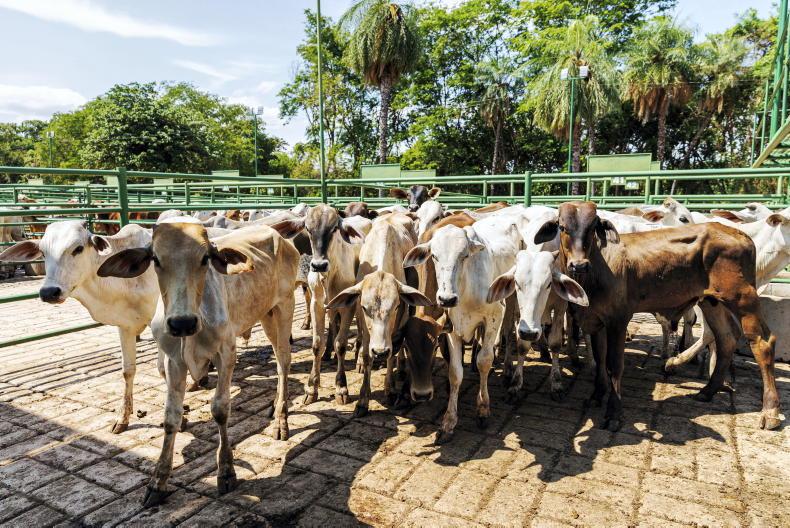

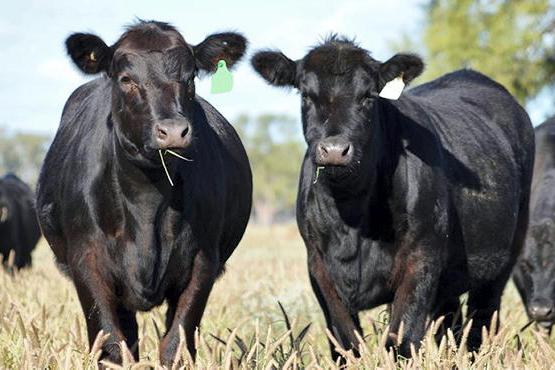
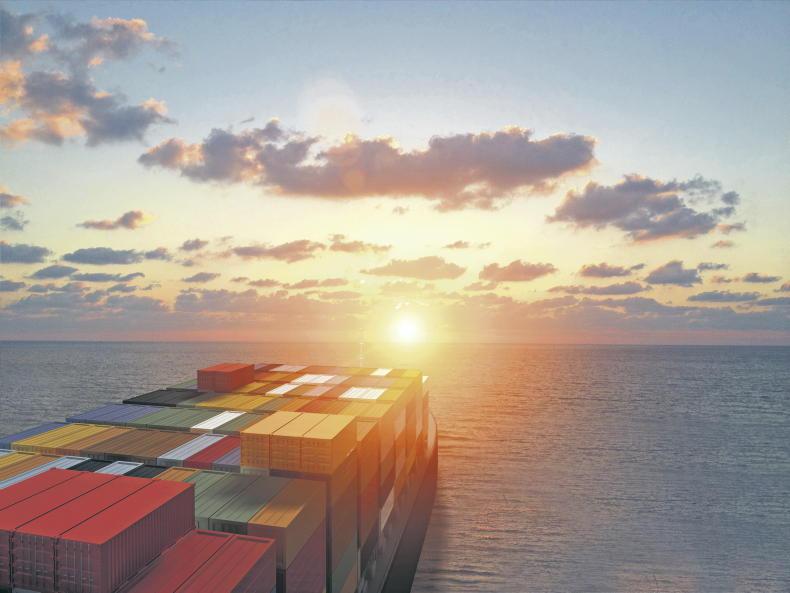
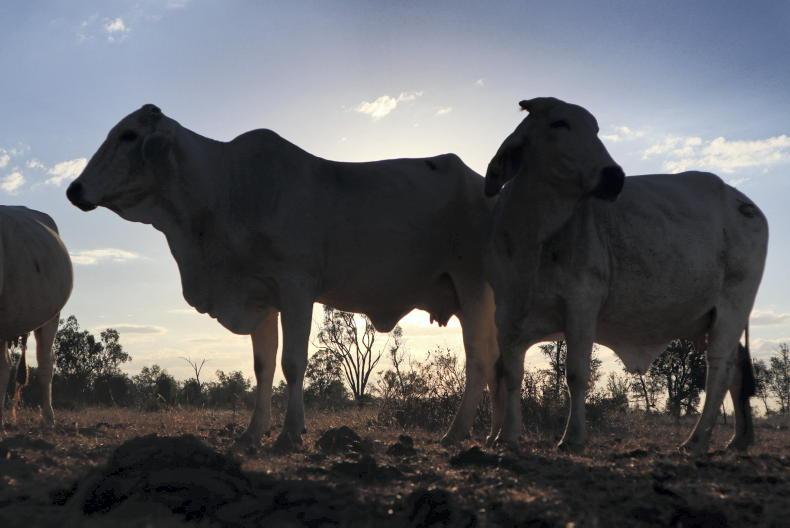
SHARING OPTIONS